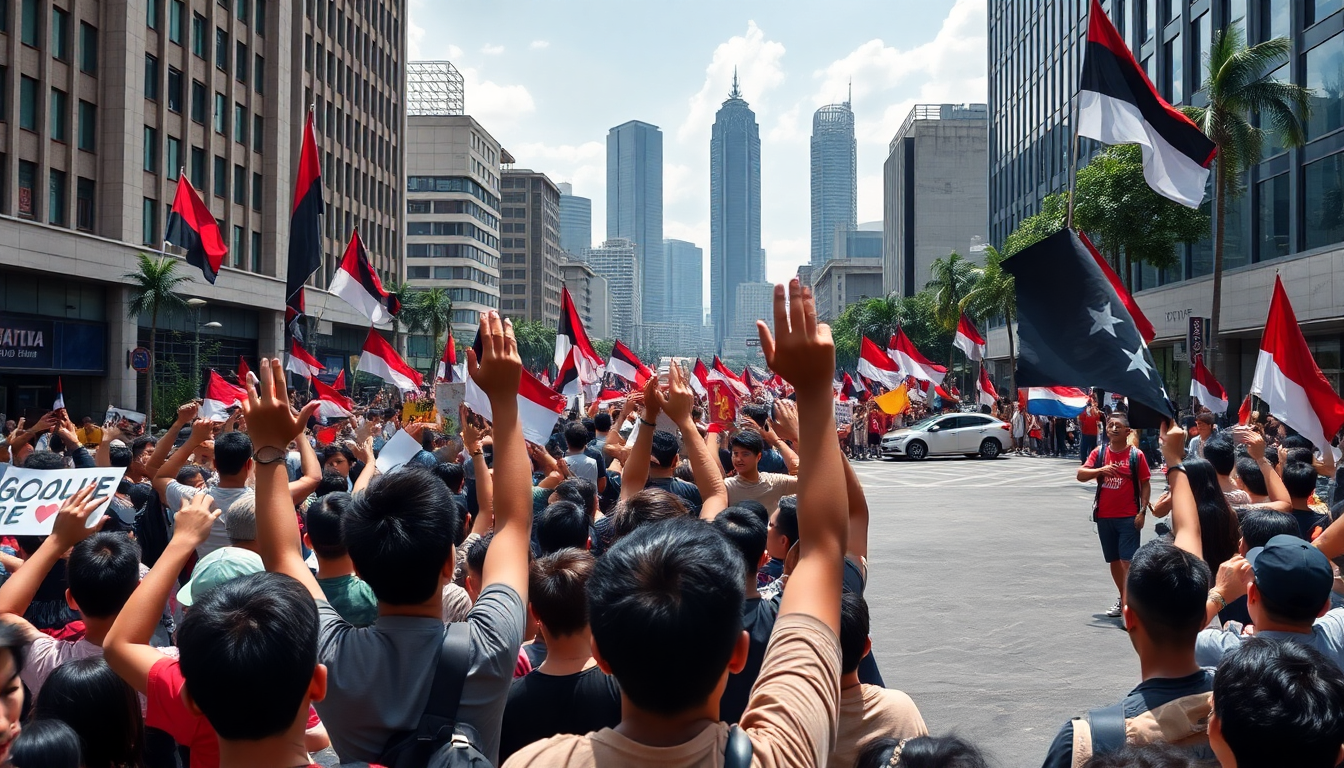Table of Contents
In a powerful expression of public discontent, thousands of students and activists flooded the streets of Jakarta to protest against the controversial housing allowances that members of parliament have been receiving. This wave of demonstrations was sparked by reports revealing that lawmakers were pocketing an eye-popping 50 million rupiah—over $3,000 a month—while many Indonesians struggle to make ends meet. It’s hard not to feel the frustration brewing over perceived inequality and corruption among the political elite.
The Context of the Protests
The backdrop to these protests is a deepening economic struggle faced by everyday citizens. Just think about it: the housing allowance awarded to lawmakers is about 20 times the minimum wage in some of Indonesia’s poorest areas. It’s no wonder this glaring disparity has ignited anger among the populace, pushing demonstrators to demand immediate reforms and a reassessment of the perks enjoyed by elected officials.
Things escalated quickly on a recent Monday when protesters, clad in dark clothing, clashed with riot police. Tensions reached a boiling point as demonstrators tried to breach the parliament building, prompting law enforcement to deploy tear gas and water cannons. Amid the chaos, at least one motorcycle was set ablaze, though authorities have yet to disclose any details about injuries or arrests. The police presence was overwhelming, with over 1,250 officers assigned to keep order around the parliamentary complex.
Public Sentiment and Call for Action
The protestors, organized by a group known as Gejayan Memanggil, made their demands loud and clear: they want cuts to parliamentarians’ salaries and an end to what they see as corruption among political elites. They also criticized policies that they feel prioritize corporate and military interests over the needs of everyday citizens. Interestingly, the protest was visually marked by a flag from the popular Japanese manga series One Piece, which has emerged as a symbol of resistance against government overreach and injustice.
Despite the unrest, officials have largely maintained their distance from the public’s frustrations. House Speaker Puan Maharani defended the housing allowance, claiming it was thoughtfully considered in light of rising living costs in Jakarta. But let’s be honest—this explanation has done little to soothe the growing anger among citizens who feel increasingly disconnected from their representatives.
The Broader Implications
This incident in Jakarta reflects a broader wave of discontent sweeping across Indonesia, where corruption among police and political figures is widely acknowledged. Activists argue that the government’s failure to tackle economic inequality and corruption only fuels further public unrest. As more citizens become aware of the stark differences between their lives and those of politicians, the potential for more protests looms large.
As we watch this situation unfold, it’s crucial to see how the government reacts to this public outcry. Will they make any meaningful changes to bridge the widening chasm between lawmakers and the citizens they represent? The future remains uncertain, but the voices of the demonstrators resonate with a powerful demand for accountability and reform in a nation brimming with potential yet plagued by inequality. What’s next for Indonesia? Only time will tell.


